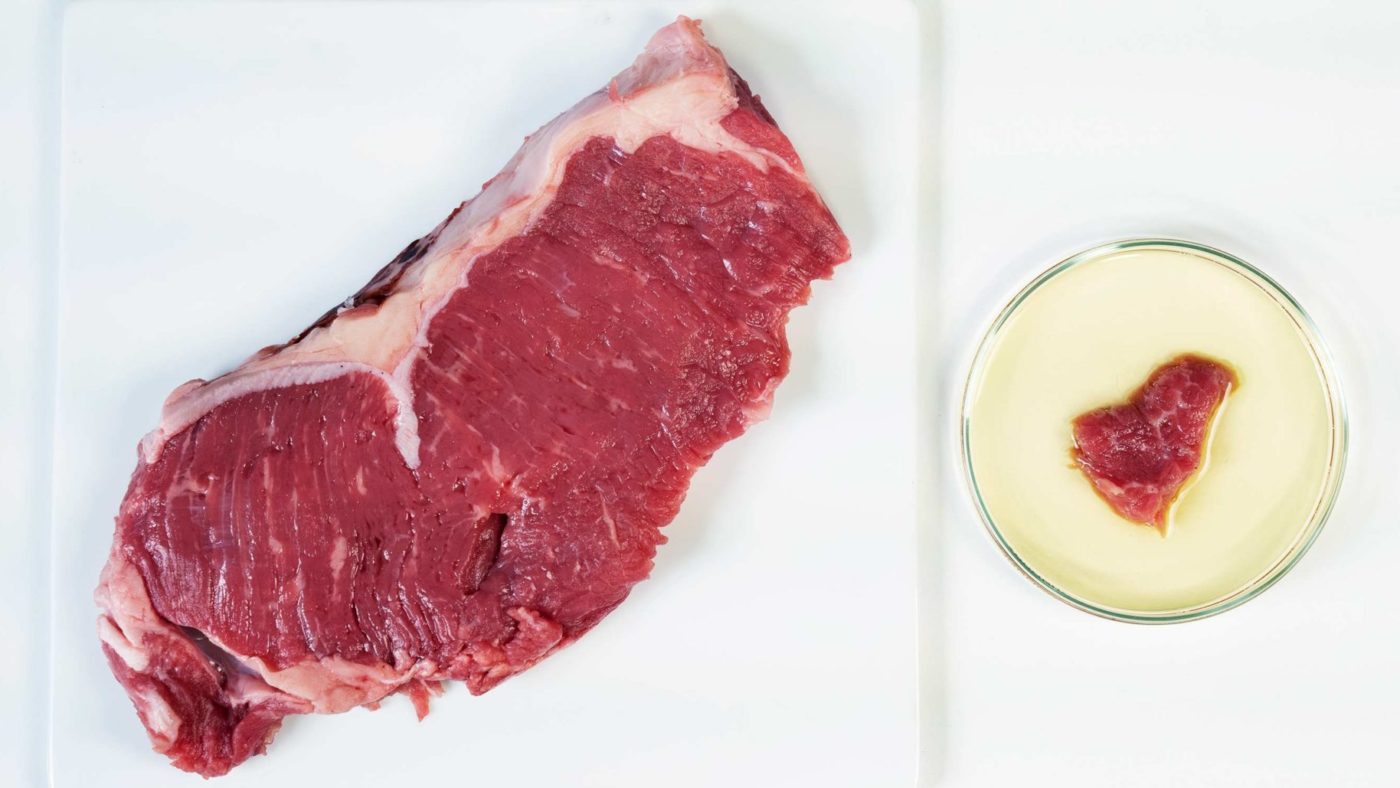Just two years ago, when the ASI published our report ‘Don’t Have a Cow, Man’ on the potential for lab-grown meat, one reader suggested the authors were portraying “a sci-fi world”. Yesterday, that world became a reality as Singapore approved cultured chicken meat for sale. The importance of this development cannot be overstated. It knocks down key barriers, allowing the hundreds of companies and billions of pounds lined up in lab-grown meat to progress.
Lab-grown meat has been the next frontier of food production for decades. With the well-known faults of traditional meat production – cruelty to animals, environmental harms, potential for disease, or human overconsumption – the world’s leading scientists have long had their eyes on changing the way we consume meat. While some unimaginative folk talk about unrealistic ‘meat bans’ to prevent harm, the best way to get people to consume differently is always to innovate, not prohibit.
Cultured meat, grown from animal cells in bioreactors, allows for companies to grow meat without having to kill an animal. In the case of Eat Just, the manufacturer of the recently approved chicken bites, they take the cell from a live chicken, much like a human cell biopsy. The result is genetically identical chicken meat. And it’s not just real meat, it’s high-quality meat – grown without antibiotics and in a cleaner environment, resulting in less microbial content.
This progress, combining the best minds with sensible regulatory frameworks, will revolutionise our approach to food production and its environmental burden. After all, agriculture accounts for more greenhouse gas emissions than all forms of transport combined. The fields required to house animals may require the felling of trees – often the underlying cause of deforestation in developing countries and the destruction of rainforests like the Amazon. One kilogram of beef takes up to 20,000 litres of water to produce, and one kilogram of wheat used to feed that beef can take up to 4,000 litres. Generating meat in a lab will remove all of that. In the words of Princeton bioethicist Peter Singer, lab-grown meat allows us to go “directly from the nutrients to the meat” resulting in considerable environmental and cost savings.
Though expensive at the moment, the more the technology develops, competition increases and consumers cotton on, lab-grown meat should eventually become less expensive than premium meats. Granted, it might not win over vegans, due to the animal cell biopsy still required, but one can hope that enough regular meat eaters will find an appealing alternative to traditional meat to provide commercial viability and real environmental and animal welfare savings.
And the techno-optimists aren’t the only ones holding out hope. Two of the largest meat producers in the world, Tyson and Cargill, have already bought stakes in an alternative meat producer. This is where our future lies. It’s possible our grandchildren will look back on us in horror: why did you kill animals for your food? All the suffering and damage will soon no longer be necessary.
There are still concerns. None of this will be viable if governments and pressure groups take the same approach to this development as they have with GM foods. The heavy-handed regulation and outright banning of foods such as golden rice, proven to save lives by improving vitamin retention, is regressive, reactionary and has no grounding in science. We cannot allow a safe, healthy, and environmentally conscious alternative to traditional meat to suffer the same fate. Nor should the farming industry be allowed to prevent cultured meat from being described as beef, lamb, or chicken (even if clearly labelled ‘cultured’ or ‘lab-grown’).
Singapore is known for its revolutionary approach to scientific advancement. It’s part of what brought that small island with no resources of its own to the top of the world leader boards. The UK would do well to follow in her footsteps and move towards this new frontier of meat production.
Click here to subscribe to our daily briefing – the best pieces from CapX and across the web.
CapX depends on the generosity of its readers. If you value what we do, please consider making a donation.


